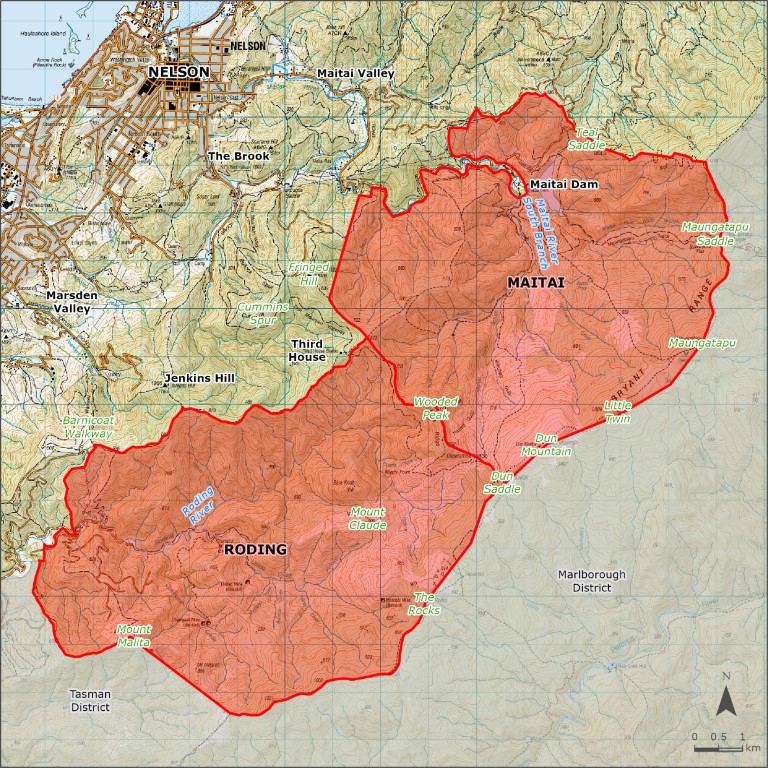Restoring the biodiversity of Maitai and Roding Water Reserves
Nelson Nature’s annual pest control operation to protect the forests in the Maitai and Roding water reserves will take place from 28 September – 9 October 2020.
Goats and deer graze on young native seedlings, which can damage or kill them and prevent the forest regenerating naturally.
The pest operation is carried out by professional hunters working from the land as well as via helicopter with infrared equipment. The operation is designed to reduce pest numbers to low levels over a long time-frame so the forest has a chance to recover. More than 4,200 ha of the reserve will be covered.
The areas covered by the programme need special protection as they are home to threatened plants associated with the limestone geology in the area, and to plants found only in the Dun Mountain Mineral Belt ecosystem.

Track Closures
Please note all tracks in the Maitai and Roding catchments will be closed between 28 September – 9 October (inclusive), this is to allow contractors to carry out the pest animal hunting operations safely.
Warning signage will be in place at trail entrances to give advance notice of the closures.
Council apologises for any inconvenience and recommends people follow all signage and respect restrictions.
Animal control operations FAQs
Why is the Council involved in this operation?
Nelson City Council manages the Maitai and Roding Catchments as conservation reserves. The objectives of this management are to maintain the quality of Nelson's water supply, to conserve the extensive and nationally significant ecosystems in the reserves, and to provide access for recreation if that is compatible with the other objectives.
What damage are these animals doing?
Currently, much of the forest in these reserves is in a poor state due to browsing ungulates (goats, deer) slowing forest regeneration over many decades. The main issue is not that animal numbers are abnormally high, it’s that the amount the animals are eating means the forest is stuck in a degraded state and being held back from regeneration.
Why do you need to get contractors in - wouldn't recreational hunters do this for free?
For many years, numbers of goat and deer in the catchments have been (and continue to be) controlled by the reserve caretakers and permitted recreational hunters to ensure their droppings don’t begin to have an impact on water quality.
In recent years, greater emphasis has been put on doing more to protect our high-value natural environments, looking after the forest itself. To achieve that we are using a combination of recreational hunting throughout the year and an annual control operation using professional hunters.
A professional control operation ensures that the whole area is covered systematically, efficiently and safely. The two approaches complement each other.
What happens to the meat? Can the meat from the animals be recovered?
Unfortunately, carcass recovery is impractical and inefficient for a variety of operational reasons. The areas being hunted are in remote and rugged terrain. Carcasses will be left to decompose naturally in the forest, away from tracks and waterways.
I'm a recreational hunter, can I hunt in these reserves?
Recreational hunting in the reserves is controlled via a permit system. Contact Council’s Customer Service team on 546 0200 for information on how to apply.
